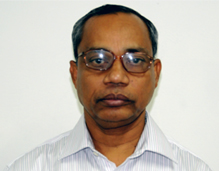Ever since 2007 when the United Nations adopted 2nd October, the birth day of Mahatma Gandhi regarded as the ‘Father of the Nation’ in India, and the torch bearer of India’s protracted freedom struggle, the day is observed as the ‘International Day of Non-Violence’ the world over, to commemorate his enduring contributions to peace and non-violence and to create awareness about the imperatives of non-violence. Emphasising the significance of the day, the UN Secretary-General Antonio Gutters observed, “Gandhi constantly highlighted the gap between what we do, and what we are capable of doing. On this international Day, I urge each and every one of us to do everything in our power to bridge this divide as we strive to build a better future for all.”[1] According to the UN General Assembly Resolution, the International Day of Non-violence is an occasion to “disseminate the message of non-violence”, through education and public awareness. The resolution reaffirms, “the universal relevance of the principle of non-violence” and the desire “to seek a culture of peace, tolerance, understanding and non-violence.”
Gandhi’s ideas and ideals continue to stir the imagination of leaders who are fighting for freedom and liberation. Writing in the New York Times earlier in 2019, on this very day Prime Minister Narendra Modi quoted Nelson Mandela who called Gandhi “the Sacred Warrior” and wrote that “Gandhi had the unique ability to become bridge between some of the strongest contradiction in human society. “In his article Prime Minister Modi further wrote, “Upon reaching India in 1959, the Rev. Martin Luther King, Jr remarked to other countries I may go as a tourist but to India I come as pilgrim”. Prime Minister Modi recalled the words of Martin Luther King that India was land where the techniques of non-violence social change were developed that his people in Montgomery, Alabama and elsewhere in the American South had used. Prime Minister Modi also alluded to Albert Einstein who said, “Generation to come will scarce believe that such a man as this ever in flesh and blood walked up on this earth.”[2]
At a time when the world is afflicted with strife and violence, as it is Ukraine and elsewhere as well, Gandhi’s ideas and ideals continue to be relevant today more than ever before. Gandhi’s ideas were not only the instruments of political struggle; they were also aimed at uplifting humankind from unbridled materialism and consumerism which are the bane of contemporary society. He emphasised on character and ethics in personal and professional conduct. He was not a preacher of truth and non-violence; rather he practised them in real life. Gandhi was great because he practised every bit of his ideology in life and he captioned his autobiography “My experiment of truth”. Gandhi’s ideas of non-violence anchored in his concept Satyagraha meaning ‘holding truth firmly’ originated in South Africa in 1907, where he fought against apartheid or racial discrimination. Later, he applied the same in India’s epic freedom struggle to liberate the country from British colonialism. He had shown to the world that truth, non-violence and love could generate more power than the power of coercion and violence. It was a different power than the power demonstrated by army and violent revolution. Gandhi is arguably the only leader in the world who was able to convert the power of non-violence into political action. South Africa was not only the birth place of Satyagraha, but was also the main testing ground of it; the laboratory of it. He carried out many experiments from his personal life to his political life in South Africa which provided him with a clean chapter where Gandhi wrote many new and fascinating events of his life. Gandhi spent three months in Pretoria Prison in 1909 where he read the great treatise of wisdom the Upanishads, Bible, and books of John Ruskin, Leo Tolstoy, E.W Emerson and Henry David Thoreau. He was greatly influenced their writings and philosophy.
Gandhi held the spirit of universal love to be the vital source of non-violence. As love and non-violence are the natural instinct of human being, it is the normal behaviour of all living creatures. Gandhi showed to the world that collective non-violence action of individuals if performed with purity of heart then it will create such an atmosphere in which violent thoughts will evaporate. Gandhi also said that non-violence didn’t mean that it was an instrument of the weak. Gandhi’s ideas of peace and non-violence hold the beacon light of hope and optimism. Gandhi was a man who seamlessly blended spiritual with temporal. No wonder his ideas and ideals are becoming increasingly popular the world over including countries like the People’s Republic of China which was born out of armed struggle, where repression and regimentation continue unabated.
References
[1]https://press.un.org/en/2019/sgsm19789.doc.htm
[2] “When India and the World Need Need Gandhi”, New York Times, 2nd October 2019, https://www.nytimes.com/2019/10/02/opinion/modi-mahatma-gandhi.html
Image Source: https://npr.brightspotcdn.com/dims4/default/779cf4f/2147483647/strip/true/crop/640x336+31+0/resize/1200x630!/quality/90/?url=http%3A%2F%2Fnpr-brightspot.s3.amazonaws.com%2Flegacy%2Fsites%2Fkwgs%2Ffiles%2F201704%2FMLK-Gandhi-Photo.jpg










Post new comment